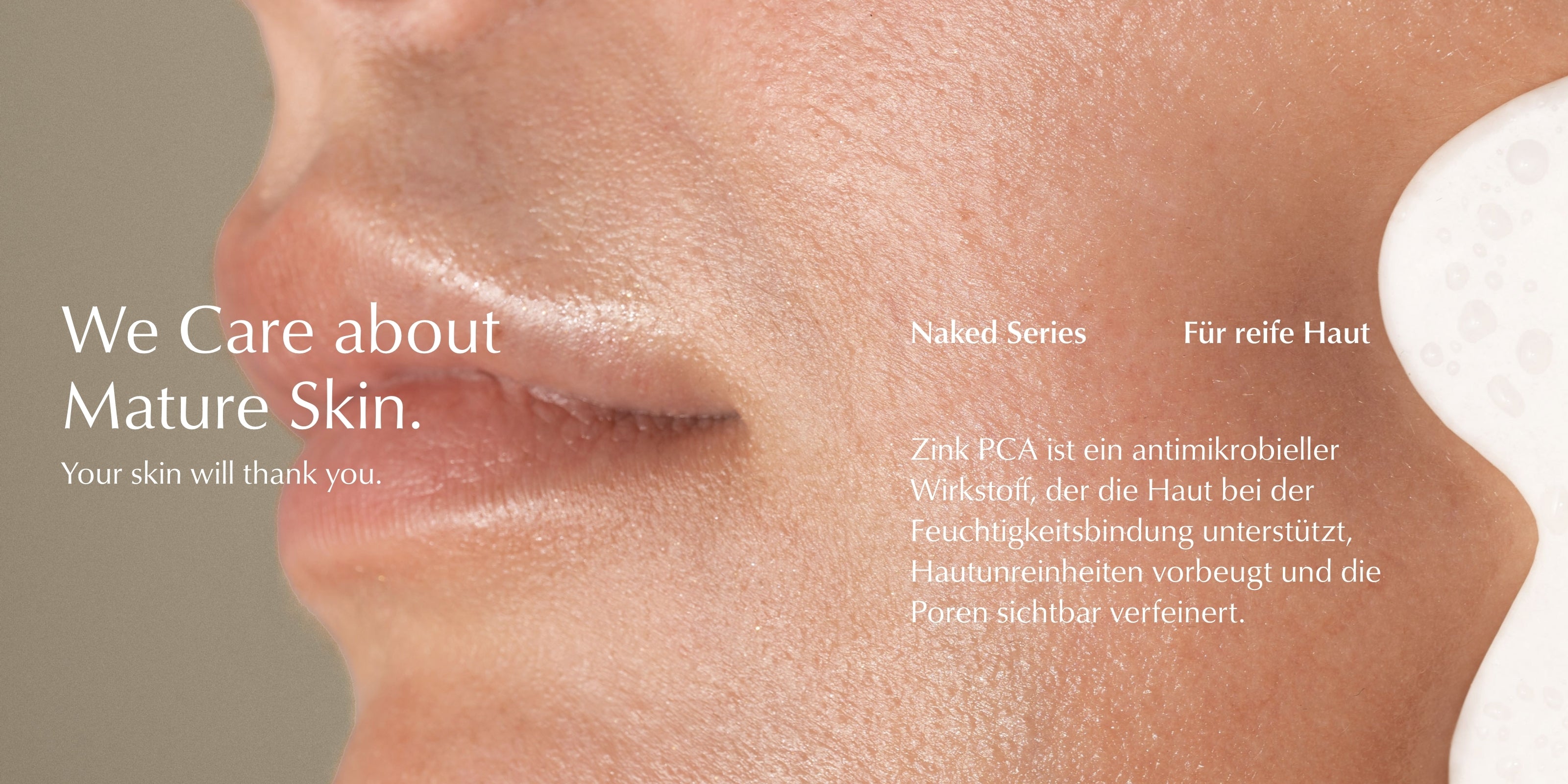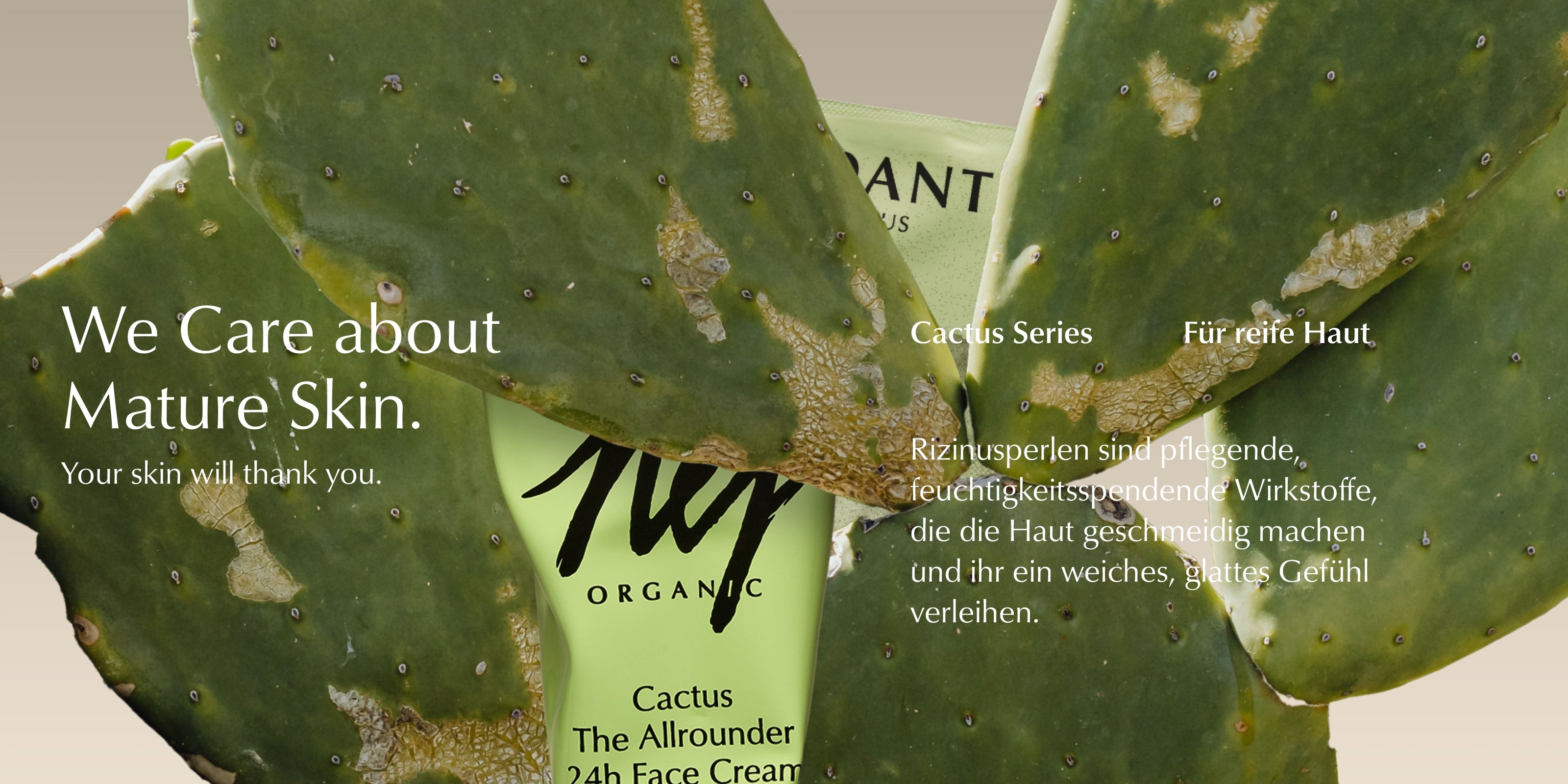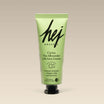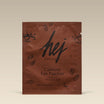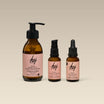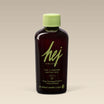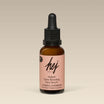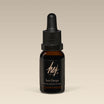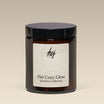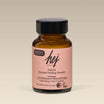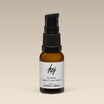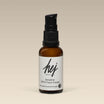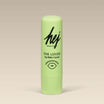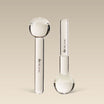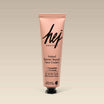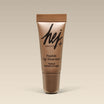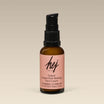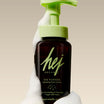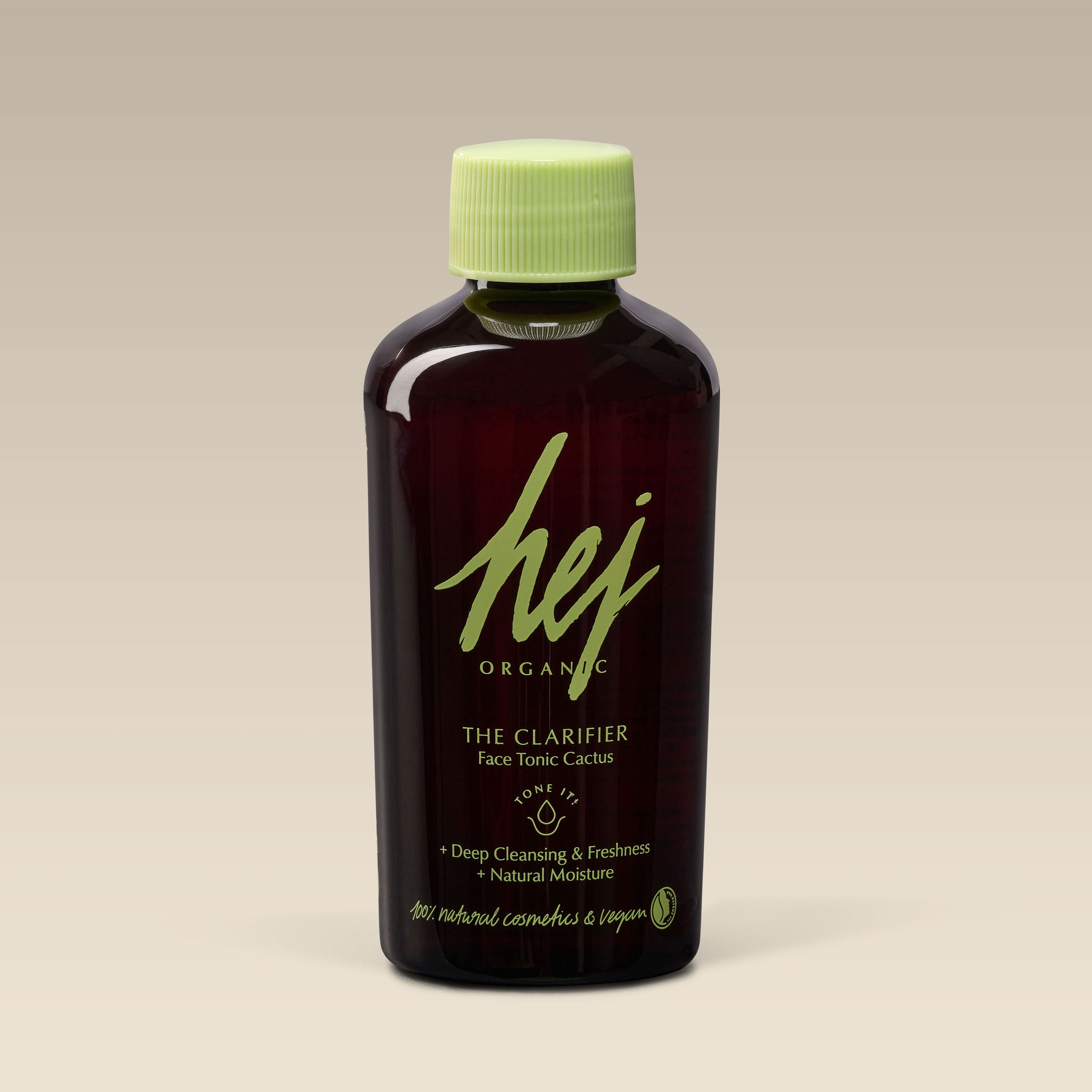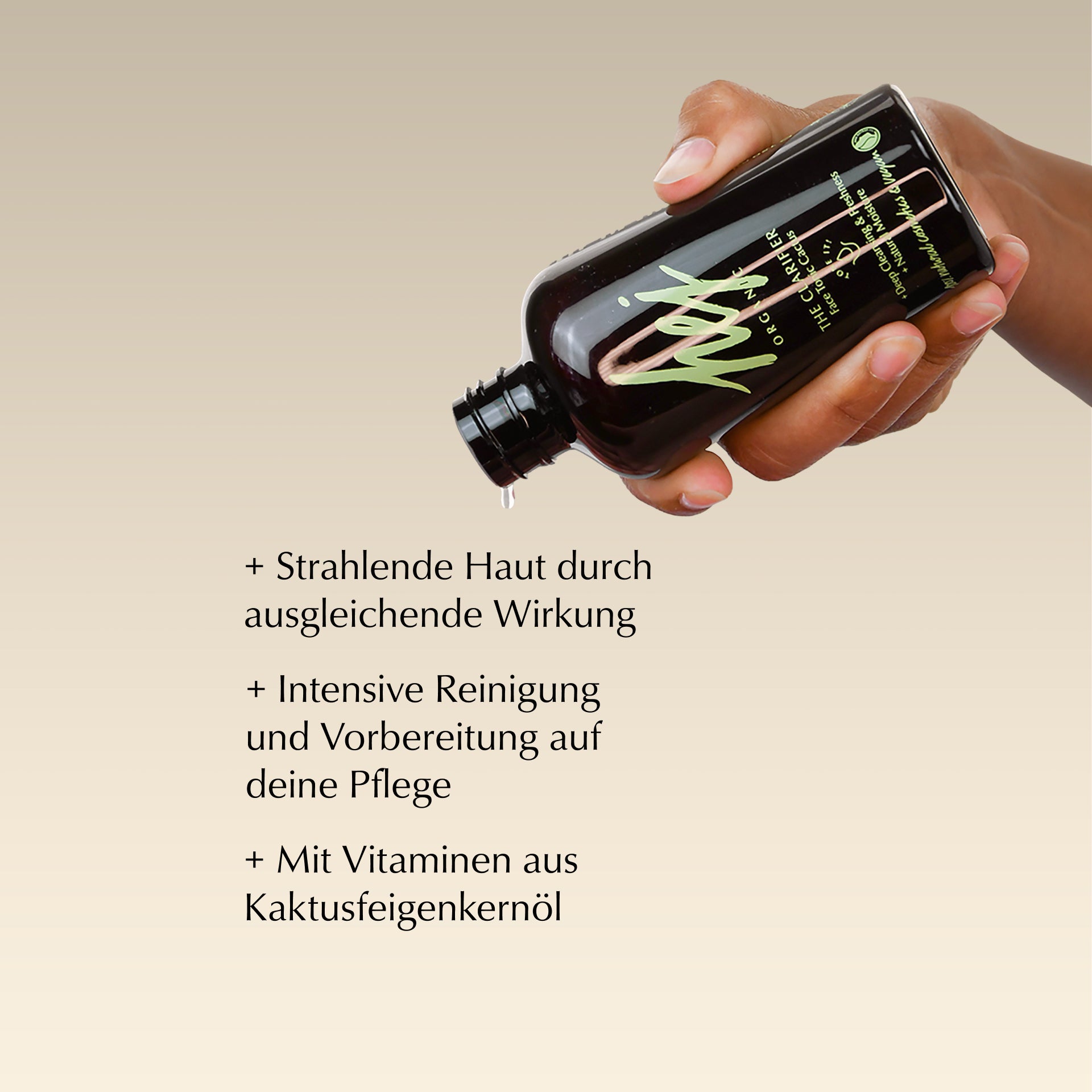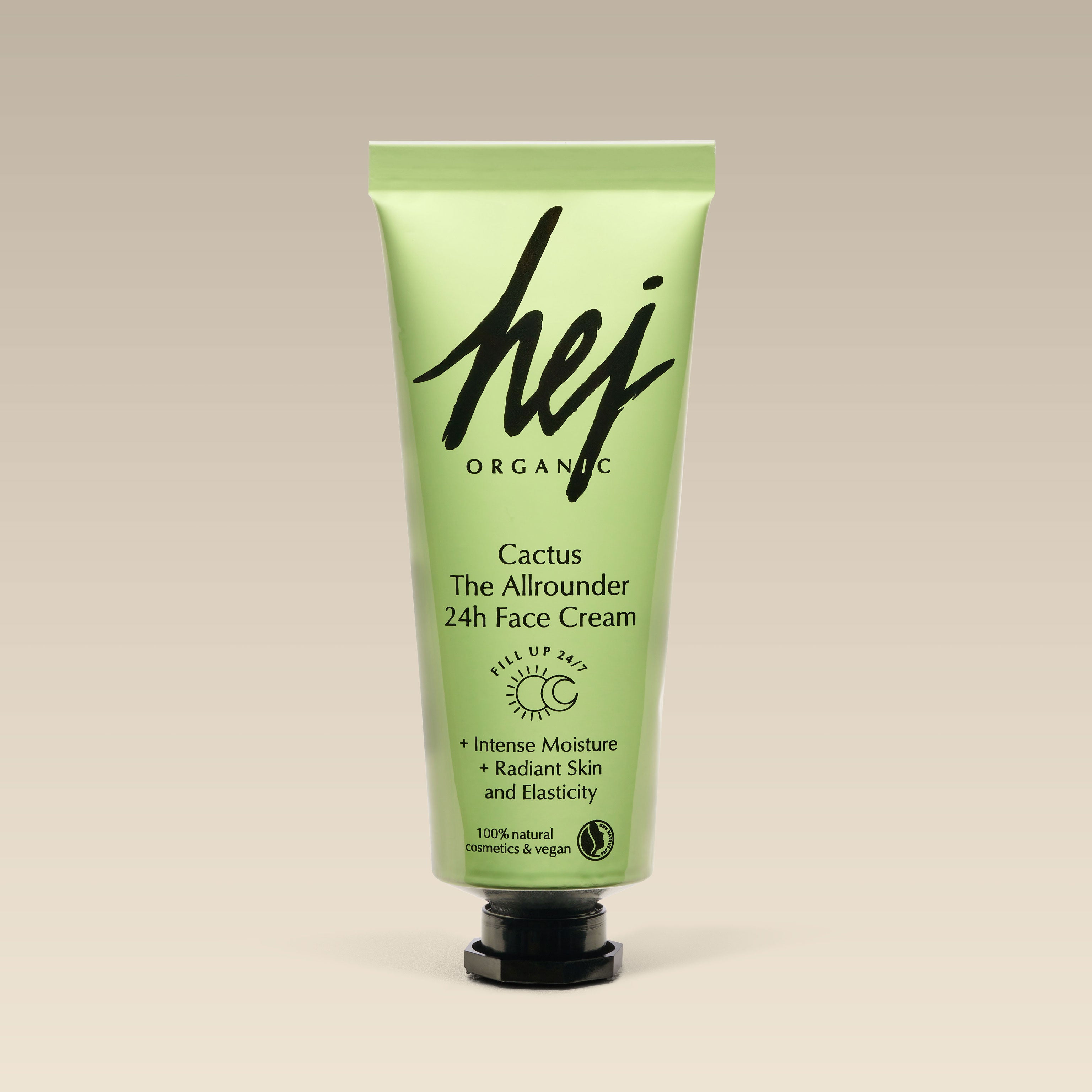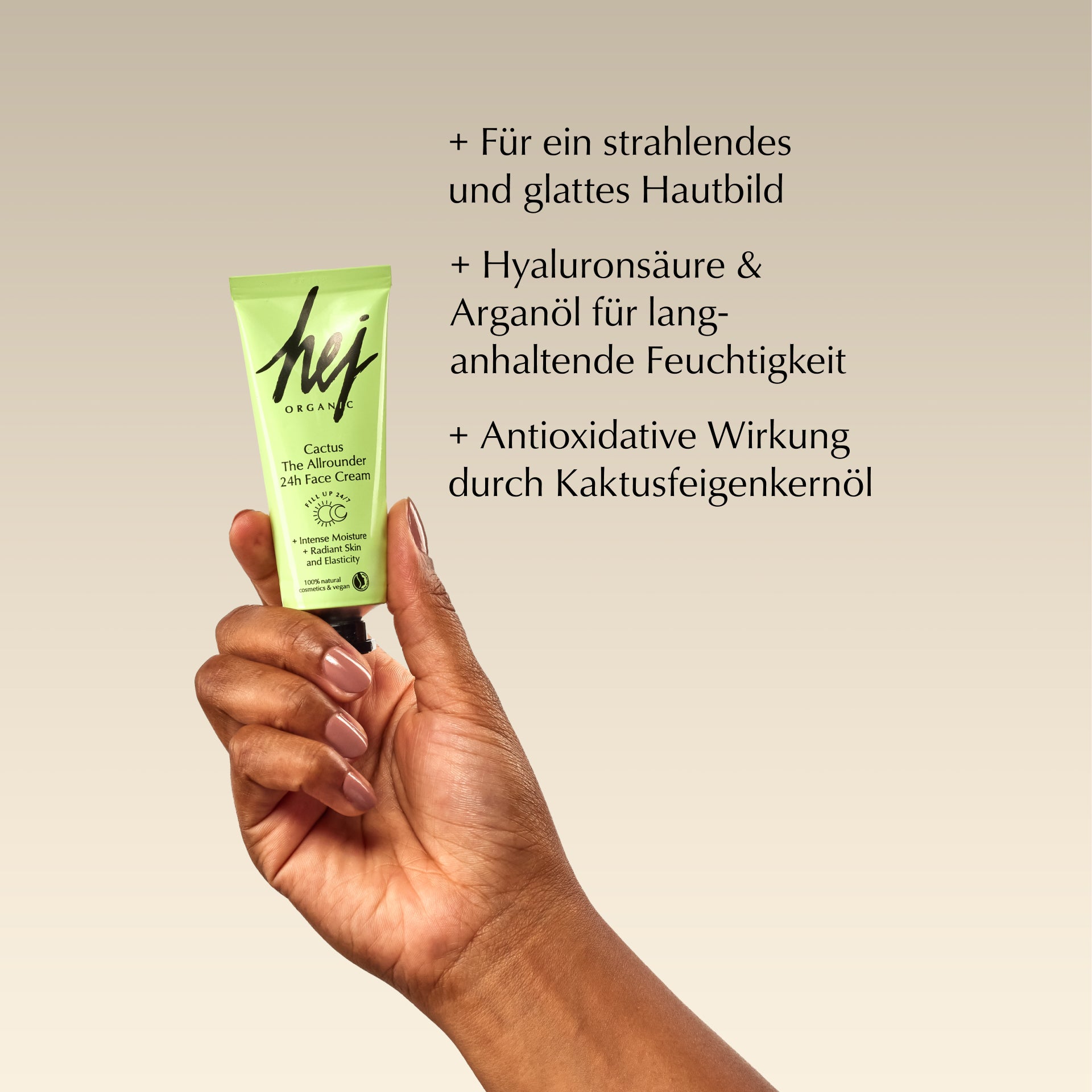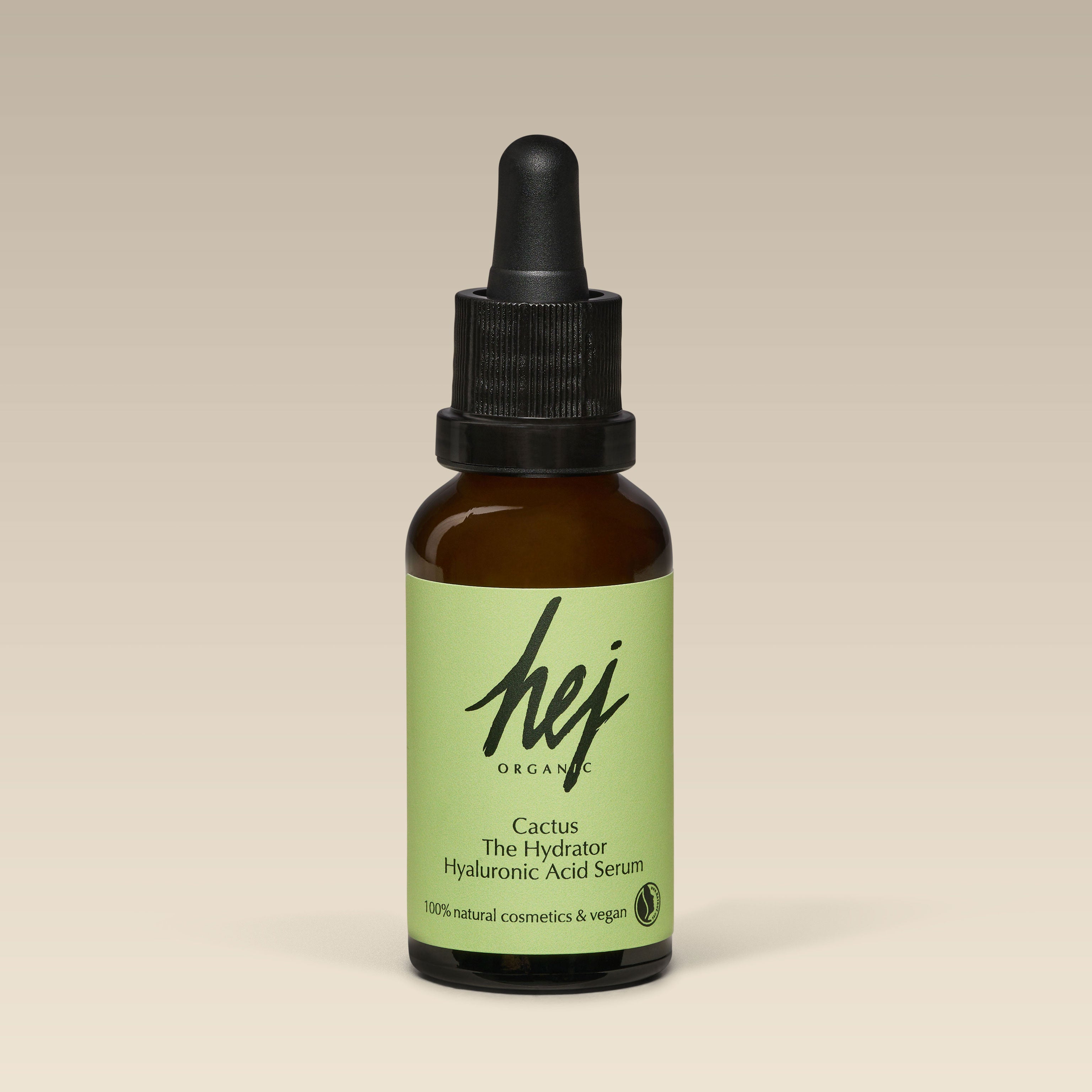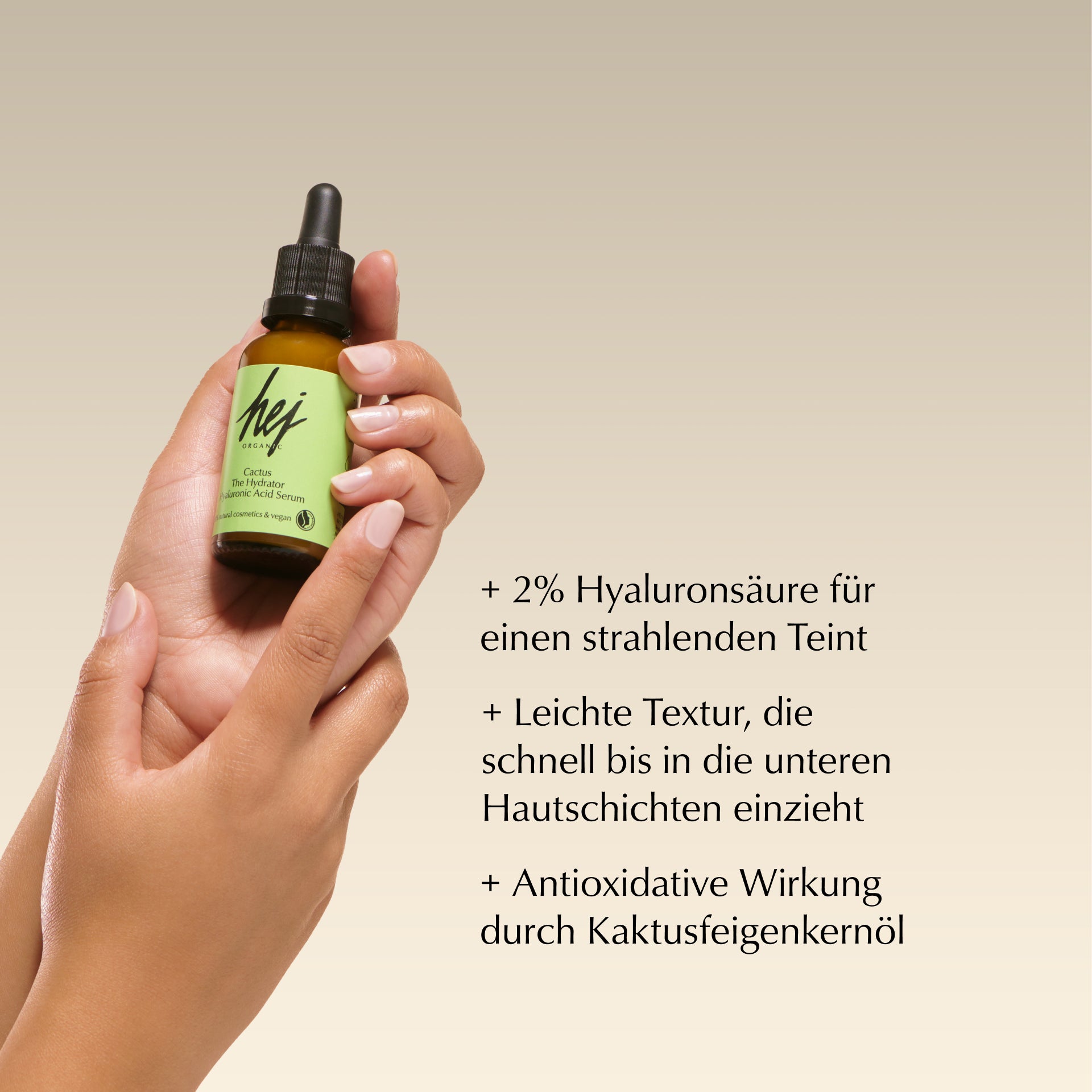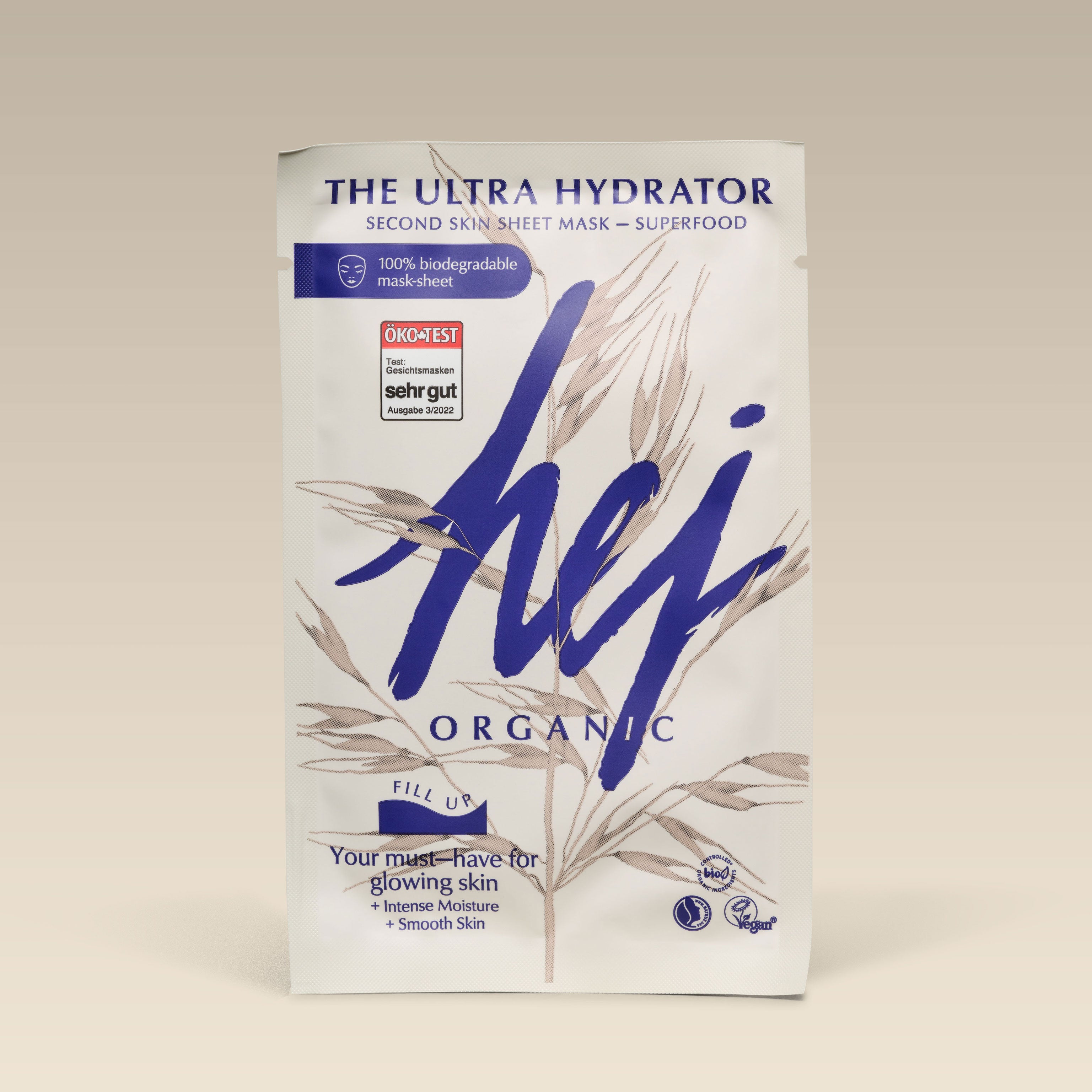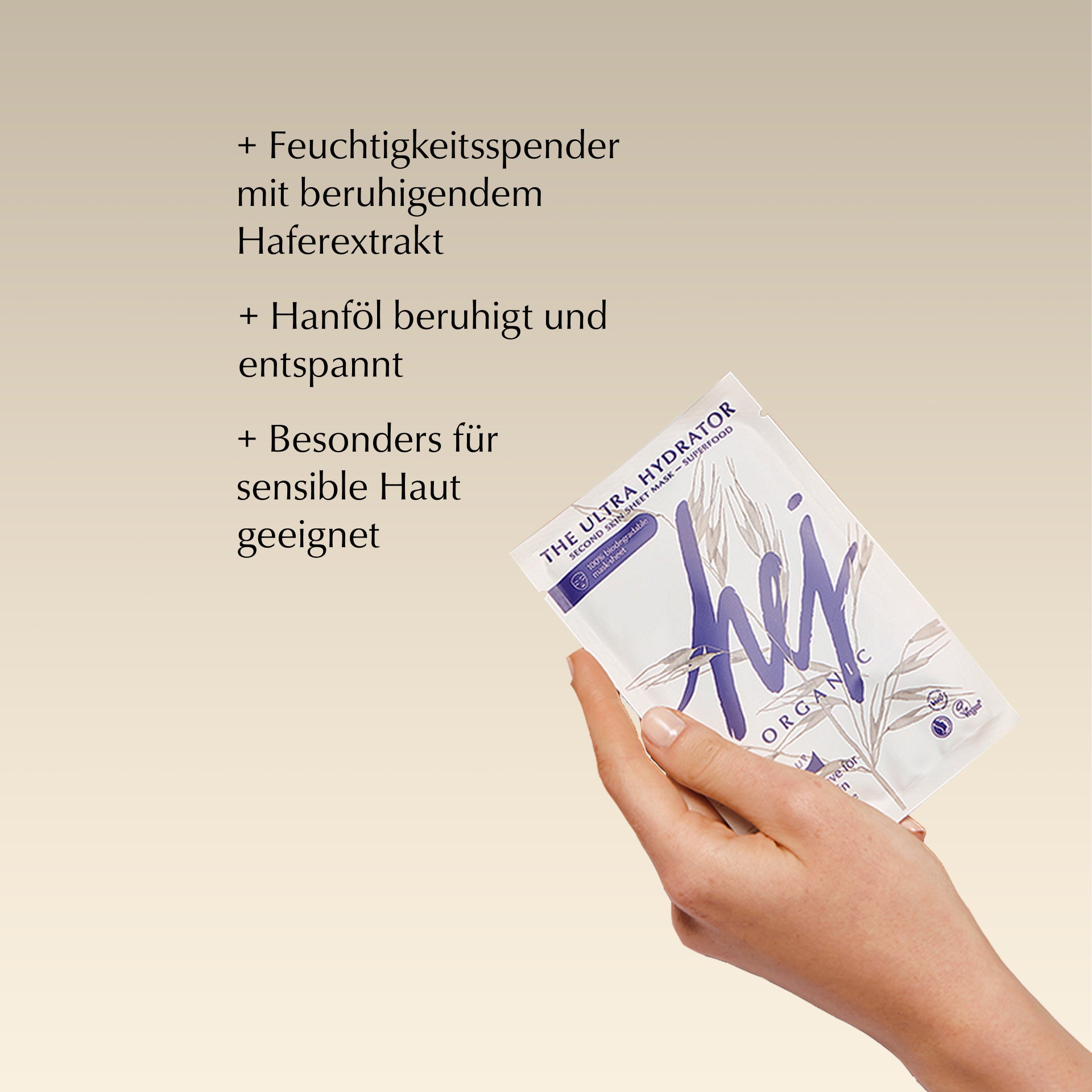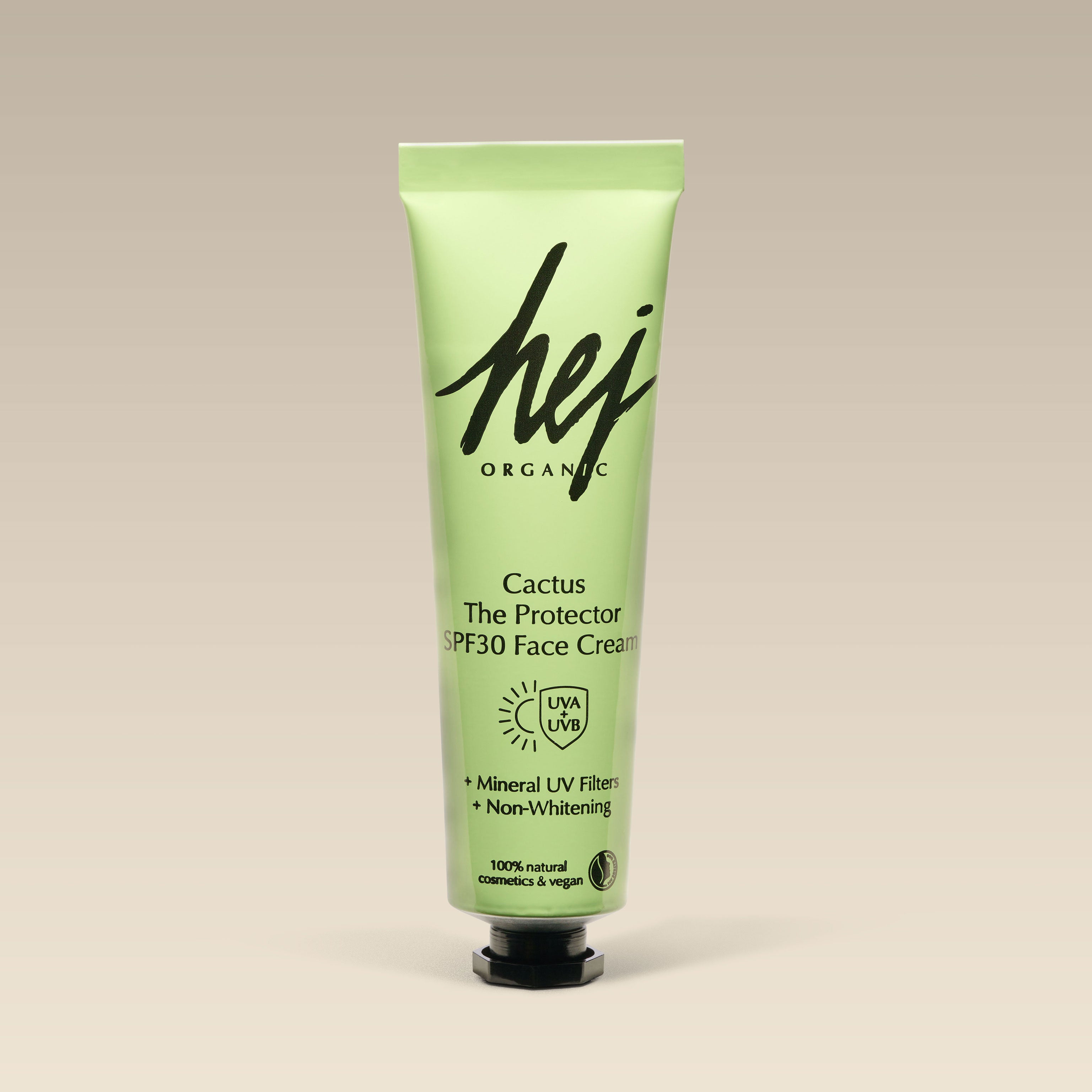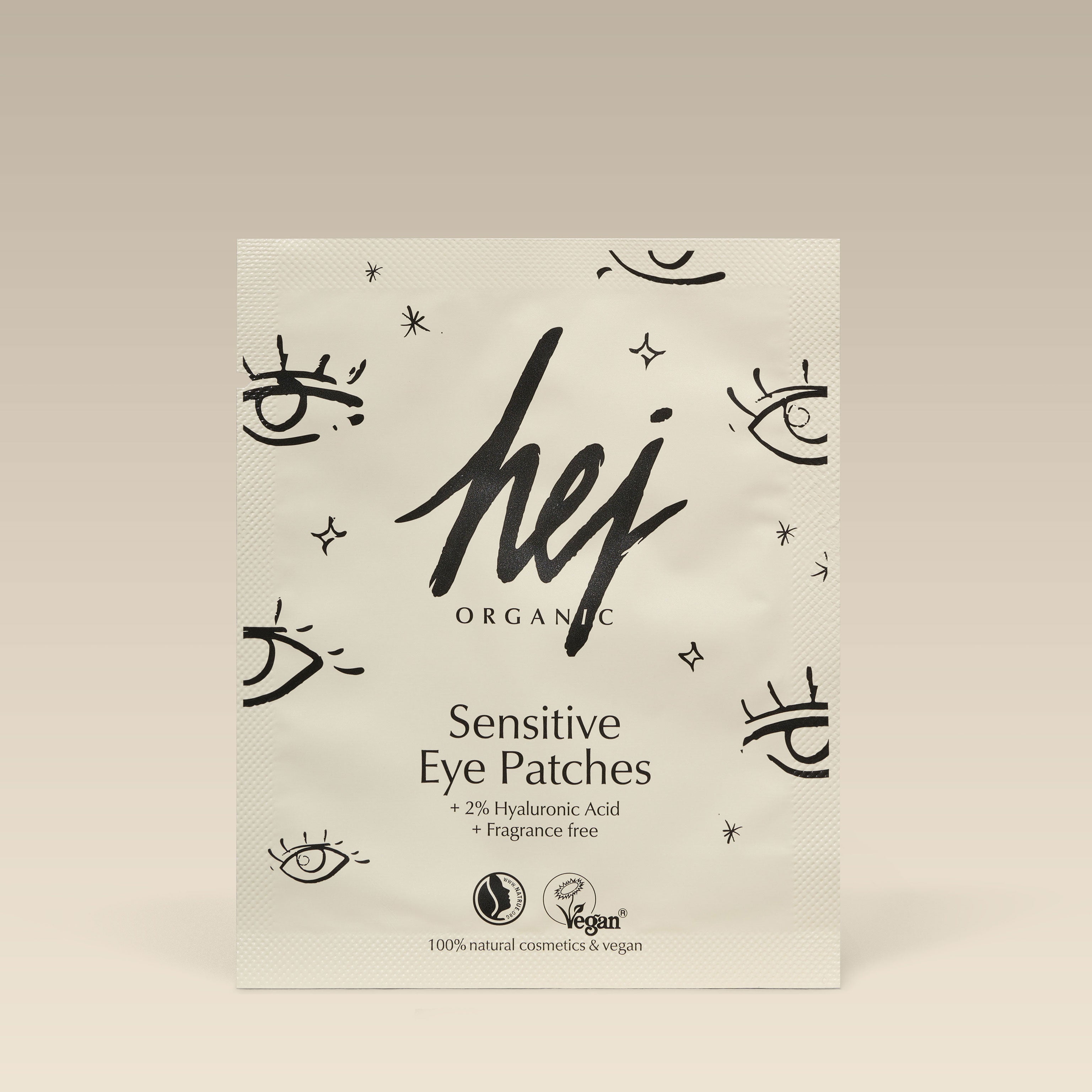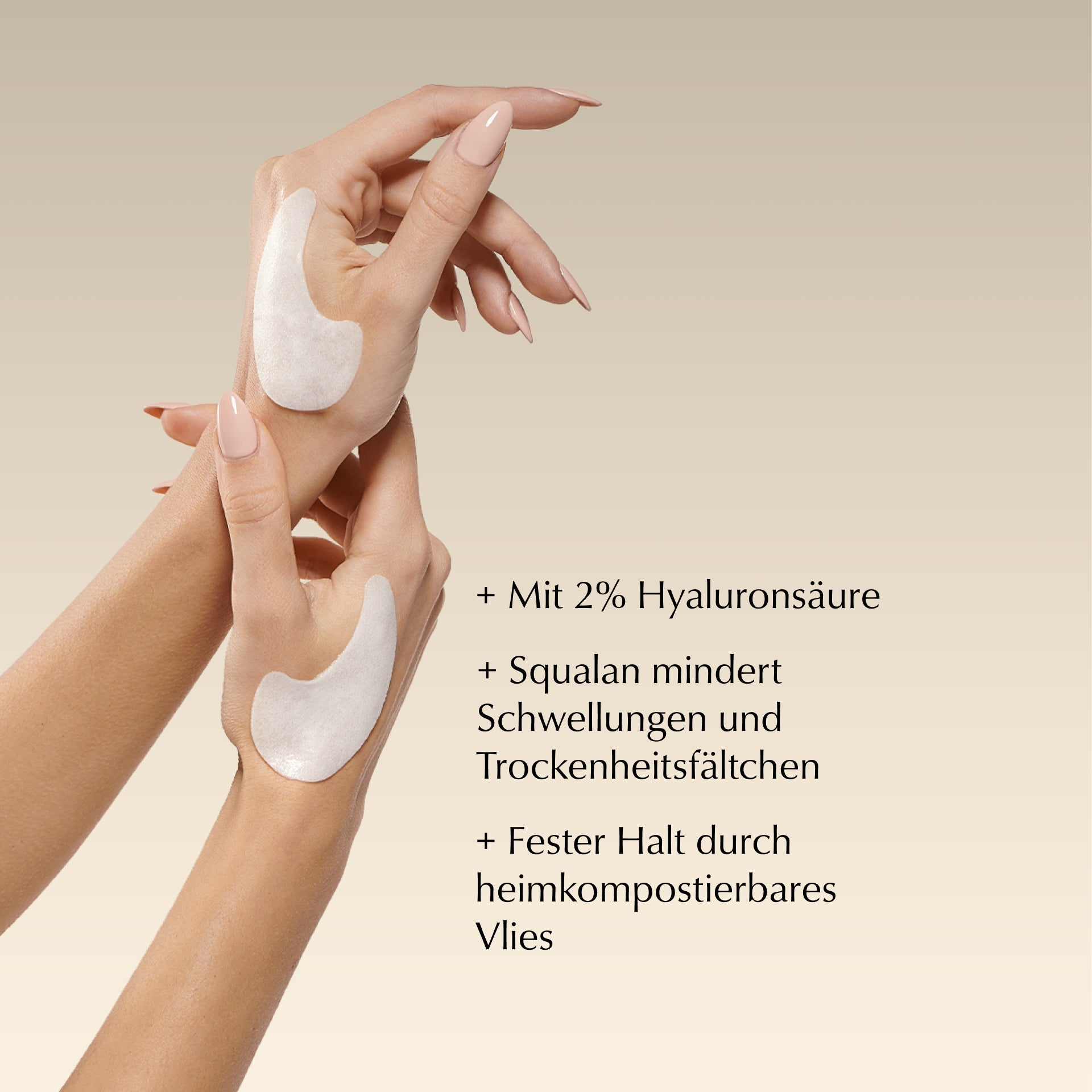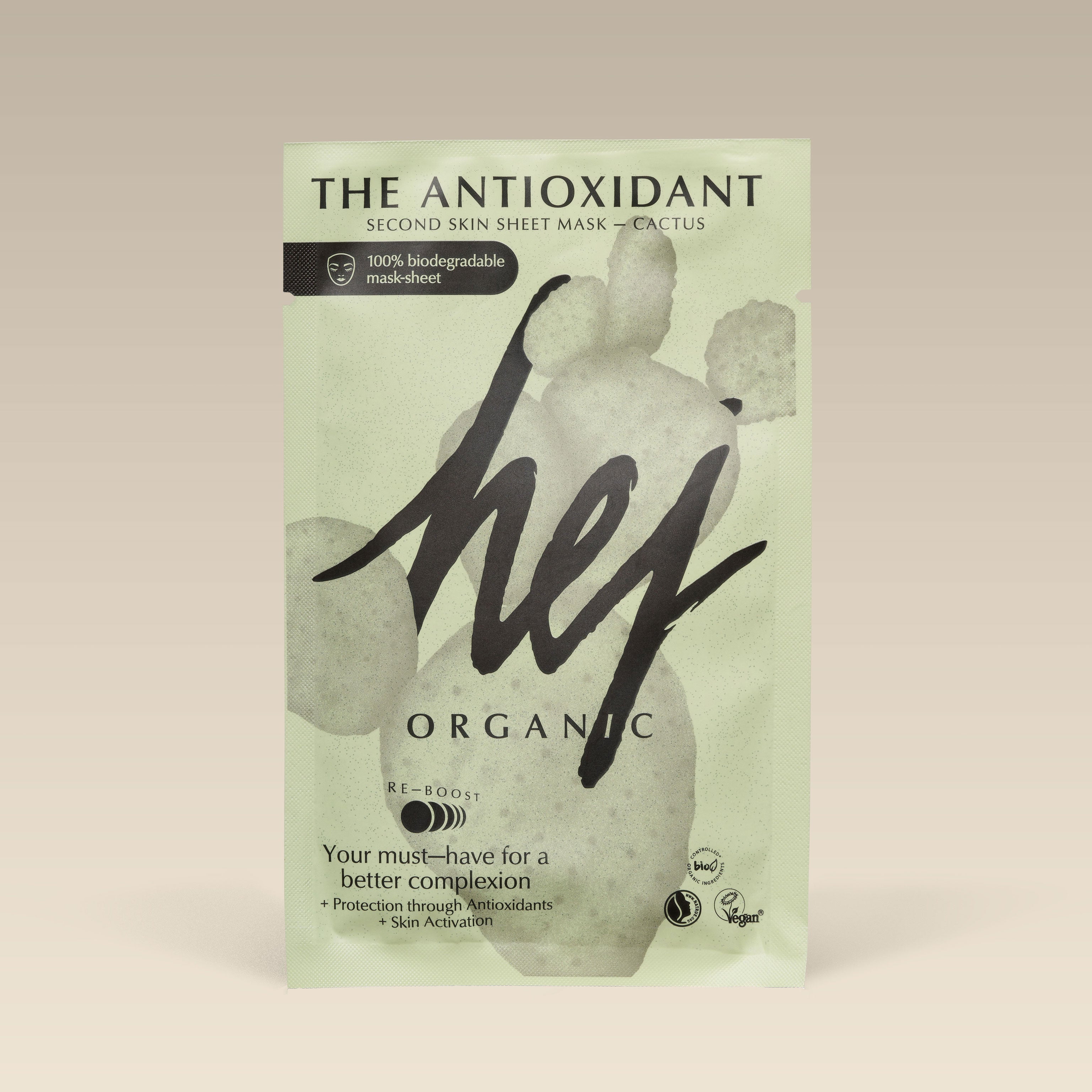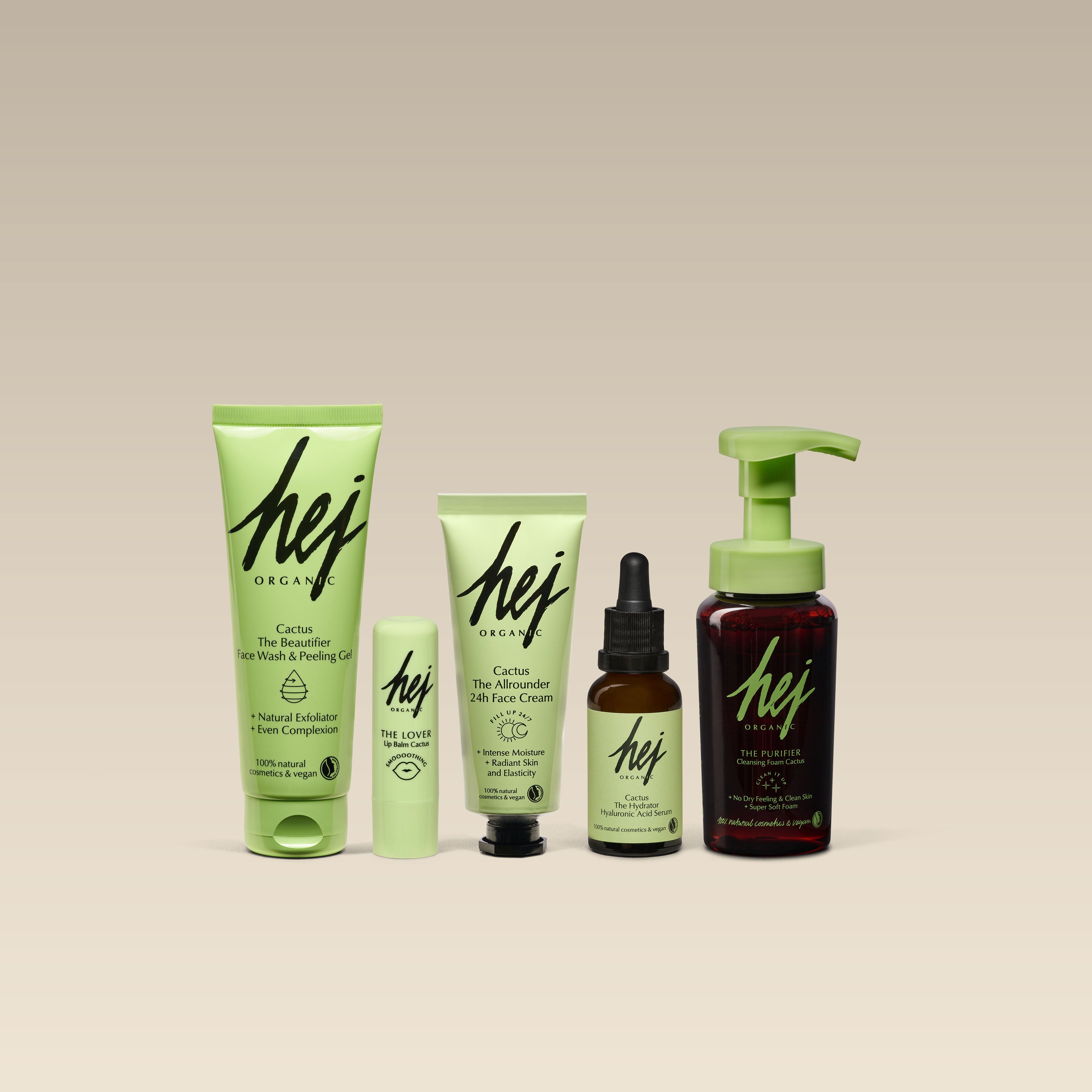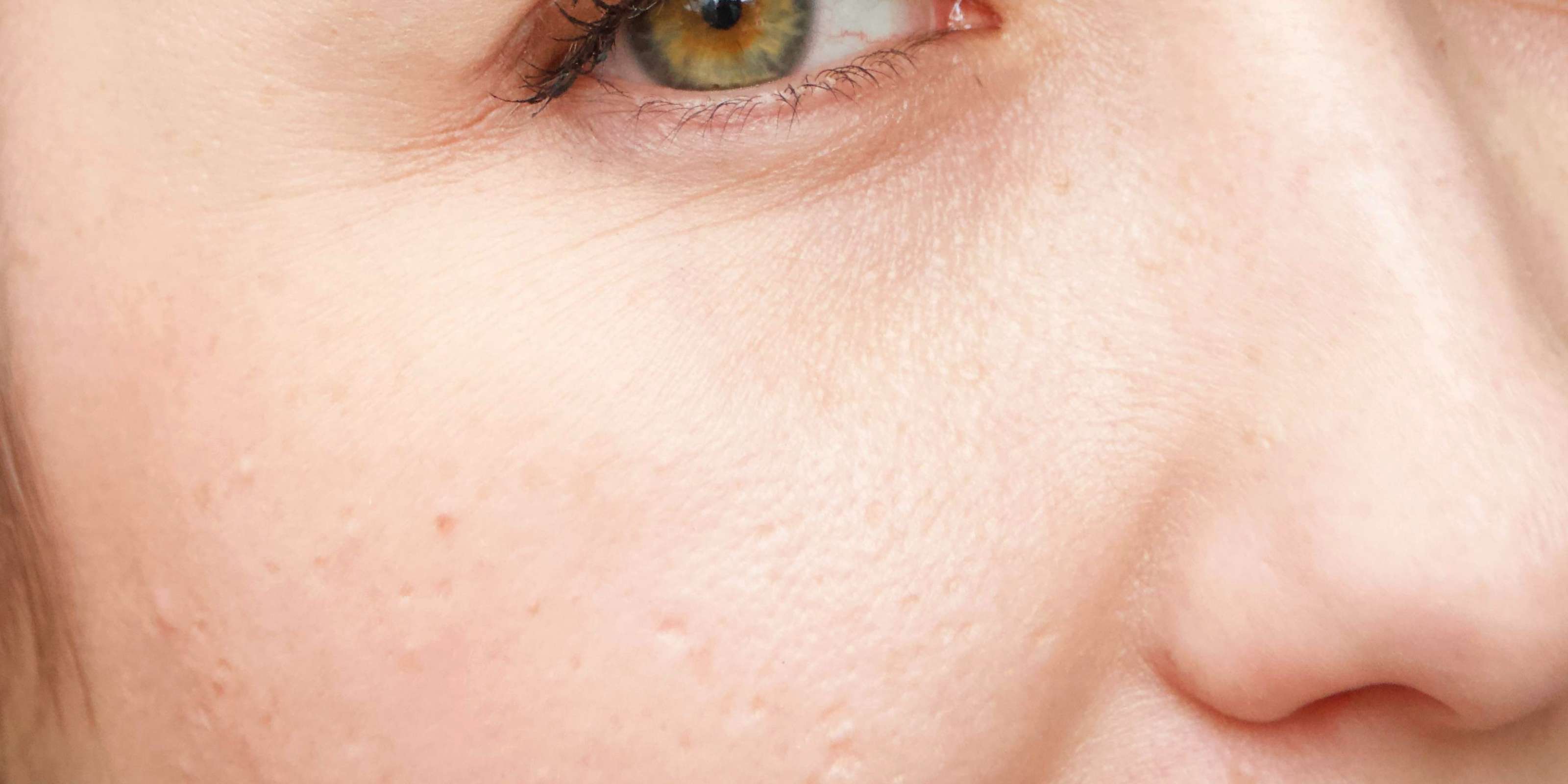
skin diagnosis
What is meant by mature skin?
Understanding Skin Condition
Mature skin describes the condition of the skin in old age, which is characterized by the loss of elasticity, moisture and firmness. It often shows wrinkles, fine lines and pigment spots due to reduced collagen production and external influences. Anti-aging measures can aim to slow down the skin aging process. This includes promoting cell regeneration, protecting against UV damage and supporting hydration to keep the skin fresh and healthy for longer.
The right care for mature skin
cleaning
A good cleanser removes dirt, sebum and make-up without irritating the skin or damaging the barrier. Tip: Use a pH-neutral, gentle cleanser and avoid aggressive products. Twice a day is enough.
peelings
As we age, cell renewal slows down, which can lead to a dull complexion and poorer skin texture. Regular peeling promotes cell renewal and improves skin texture. Tip: Exfoliate once or twice a week with gentle AHA or BHA products to remove dead skin cells without irritating the skin.
serums
Serums often contain more concentrated active ingredients and can specifically target signs of skin aging, such as wrinkles, pigment spots or a pale complexion. Tip: Choose serums with vitamin C for brightening, retinol for cell renewal and peptides for firming.
moisturizing
Moisture is crucial to maintaining the skin barrier and preventing the appearance of fine lines and dryness wrinkles. Tip: Choose a moisturizer with hyaluronic acid or glycerin to keep the skin hydrated all day long.
sun protection
UV radiation is one of the biggest factors that accelerate skin aging. It leads to wrinkles, pigment spots and a loss of skin elasticity. Daily sun protection protects against UV radiation. Tip: Use sun protection with at least SPF 30 every day, including on your hands, neck and décolleté.
A good cleanser removes dirt, sebum and make-up without irritating the skin or damaging the barrier. Tip: Use a pH-neutral, gentle cleanser and avoid aggressive products. Twice a day is enough.
As we age, cell renewal slows down, which can lead to a dull complexion and poorer skin texture. Regular peeling promotes cell renewal and improves skin texture. Tip: Exfoliate once or twice a week with gentle AHA or BHA products to remove dead skin cells without irritating the skin.
Serums often contain more concentrated active ingredients and can specifically target signs of skin aging, such as wrinkles, pigment spots or a pale complexion. Tip: Choose serums with vitamin C for brightening, retinol for cell renewal and peptides for firming.
Moisture is crucial to maintaining the skin barrier and preventing the appearance of fine lines and dryness wrinkles. Tip: Choose a moisturizer with hyaluronic acid or glycerin to keep the skin hydrated all day long.
UV radiation is one of the biggest factors that accelerate skin aging. It leads to wrinkles, pigment spots and a loss of skin elasticity. Daily sun protection protects against UV radiation. Tip: Use sun protection with at least SPF 30 every day, including on your hands, neck and décolleté.
Supporting the skin in everyday life
Healthy eating: promotes radiant skin by supporting collagen production and protecting against environmental influences. Tip: Include foods such as berries, green leafy vegetables, avocados, nuts and fatty fish. Smoke Avoiding improves the skin through better oxygen supply and a fresh appearance.
hygiene tips: Frequently touching your face transfers bacteria and dirt, which promotes impurities and inflammation. Tip: Wash your hands regularly and do not touch your face unnecessarily.
Clean bed linen and pillowcases: Dirty bed linen can transmit bacteria and cause skin irritation. Tip: Change bed linen and pillowcases at least once a week.
Regularly clean skincare tools: Makeup brushes and facial brushes collect bacteria and oil. Tip: Clean your tools weekly with a mild cleanser.
Sufficient sleep and stress management: Sleep promotes skin regeneration, stress accelerates skin aging. Tip: Get 7-9 hours of sleep and reduce stress with meditation or yoga.
Causes of Mature Skin
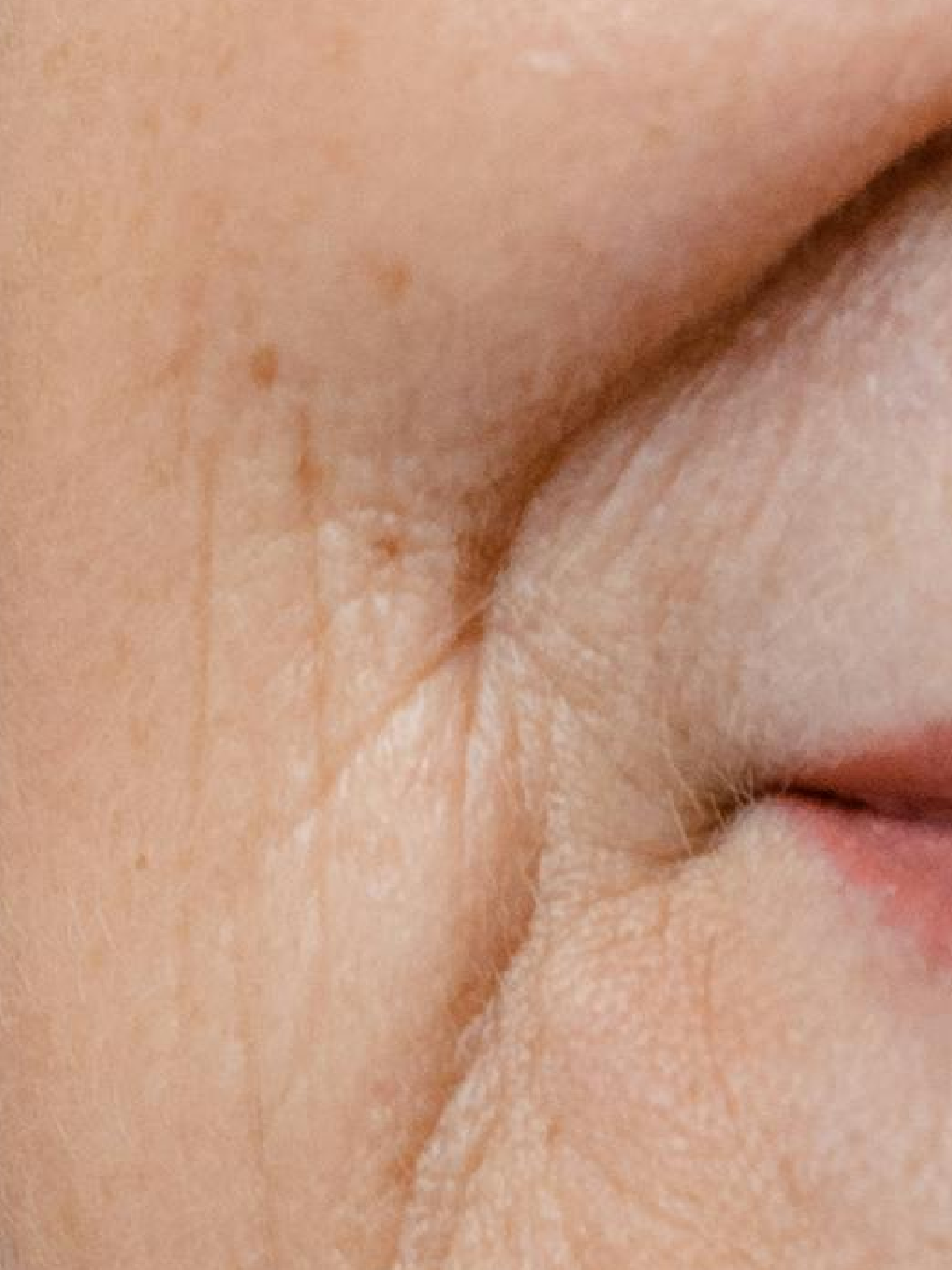
Internal influencing factors
Hormonal changes, especially in the menopause, have a strong influence on the skin. The estrogen drop leads to reduced skin moisture, loss of elasticity and increased wrinkles. To support the skin, we recommend using products with retinol, peptides and hyaluronic acid as well as a Nutrition with phytoestrogens from soy, linseed and chickpeas. Moisturizing is also crucial. The decreasing testosterone levels causes the skin to become looser and slows down regeneration. AHA products and vitamin C can help, while regular exercise promotes skin elasticity. A progesterone deficiency leads to dry and sensitive skin, which can be supported with moisturizing products and stress management through yoga or meditation.
The genetics affects skin aging, but a healthy lifestyle, sun protection and skin care can optimize the skin's appearance. High insulin levels caused by sugar accelerate skin aging, while a balanced diet and stable blood sugar levels protect. Chronic stress increases cortisol, weakens the skin barrier and promotes inflammation, but stress management and antioxidants in skin care help to reduce the effects.
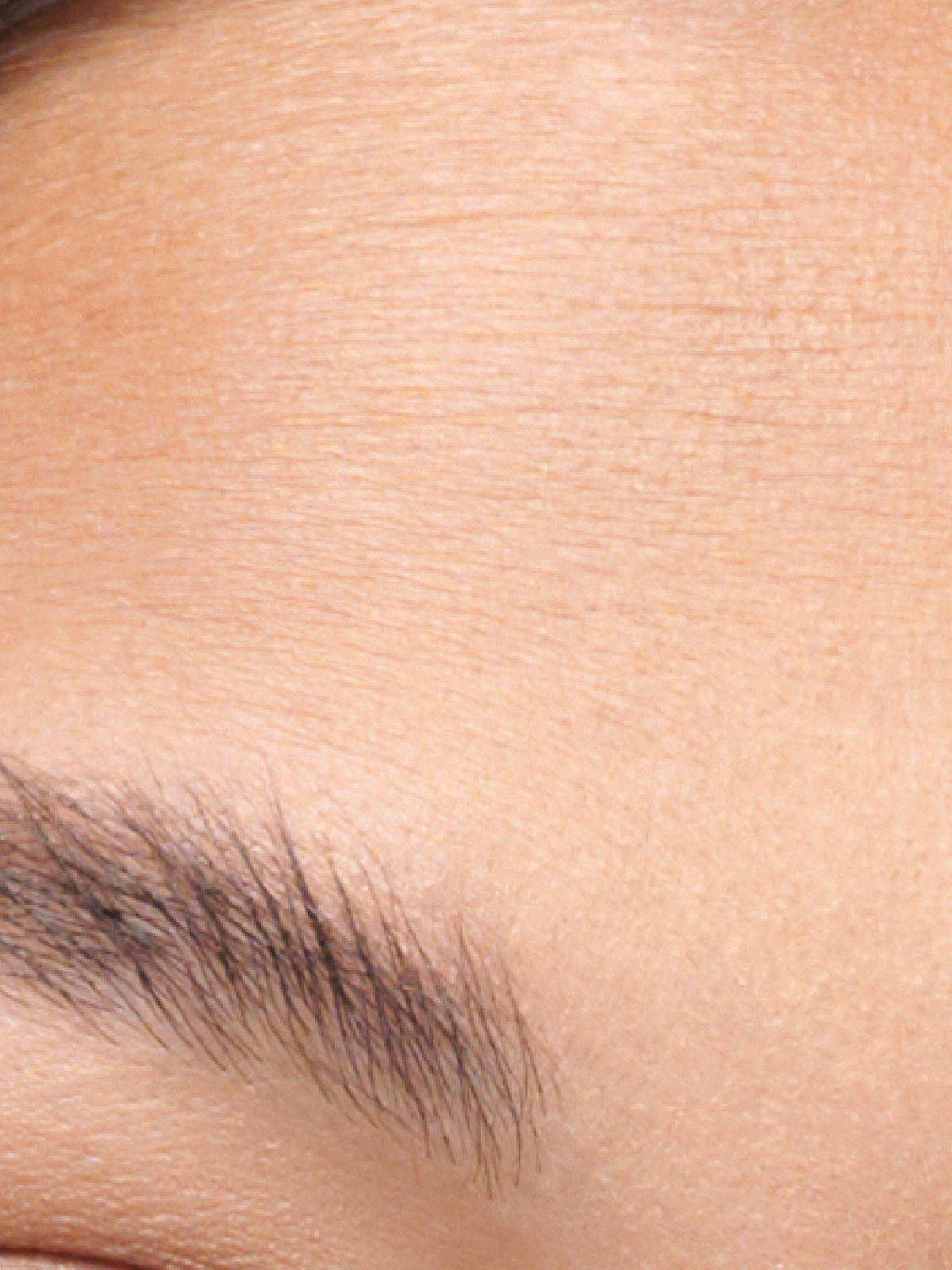
External influencing factors
While internal causes play a role, external influences can also put additional strain on skin health. It is important to recognize these factors and take targeted measures
UV radiation contributes significantly to premature skin aging as it damages the collagen and elastin in the skin, which can lead to wrinkles and sagging skin. Sun protection with at least SPF 30 is therefore essential, as is avoiding direct sun between 10 a.m. and 4 p.m. balanced diet with antioxidants, healthy fats and vitamins supports skin regeneration and protects against free radicals. Smoke reduces blood flow to the skin and decreases collagen production, so quitting is beneficial for skin health. Chronic stress promotes inflammation and affects hormone levels, which can lead to skin problems, which is why stress management is important. Sufficient sleep (7-9 hours) promotes skin regeneration. Regular exercise improves blood circulation and reduces stress. alcohol can dehydrate the skin and promote inflammation, so consumption should be limited. skin care products with anti-aging ingredients such as retinol, vitamin C, peptides and hyaluronic acid support skin regeneration and help smooth wrinkles.
Internal influencing factors
Hormonal changes, especially in the menopause, have a strong influence on the skin. The estrogen drop leads to reduced skin moisture, loss of elasticity and increased wrinkles. To support the skin, we recommend using products with retinol, peptides and hyaluronic acid as well as a Nutrition with phytoestrogens from soy, linseed and chickpeas. Moisturizing is also crucial. The decreasing testosterone levels causes the skin to become looser and slows down regeneration. AHA products and vitamin C can help, while regular exercise promotes skin elasticity. A progesterone deficiency leads to dry and sensitive skin, which can be supported with moisturizing products and stress management through yoga or meditation.
The genetics affects skin aging, but a healthy lifestyle, sun protection and skin care can optimize the skin's appearance. High insulin levels caused by sugar accelerate skin aging, while a balanced diet and stable blood sugar levels protect. Chronic stress increases cortisol, weakens the skin barrier and promotes inflammation, but stress management and antioxidants in skin care help to reduce the effects.
External influencing factors
While internal causes play a role, external influences can also put additional strain on skin health. It is important to recognize these factors and take targeted measures
UV radiation contributes significantly to premature skin aging as it damages the collagen and elastin in the skin, which can lead to wrinkles and sagging skin. Sun protection with at least SPF 30 is therefore essential, as is avoiding direct sun between 10 a.m. and 4 p.m. balanced diet with antioxidants, healthy fats and vitamins supports skin regeneration and protects against free radicals. Smoke reduces blood flow to the skin and decreases collagen production, so quitting is beneficial for skin health. Chronic stress promotes inflammation and affects hormone levels, which can lead to skin problems, which is why stress management is important. Sufficient sleep (7-9 hours) promotes skin regeneration. Regular exercise improves blood circulation and reduces stress. alcohol can dehydrate the skin and promote inflammation, so consumption should be limited. skin care products with anti-aging ingredients such as retinol, vitamin C, peptides and hyaluronic acid support skin regeneration and help smooth wrinkles.


Recognize common features
The different types of mature skin
Mature skin can manifest itself in different forms.
- Dry skin
- combination skin
- Oily skin
- Sensitive skin
Dry skin often tends to lack moisture, which promotes the formation of fine lines and wrinkles. It can also appear rough and flaky, which makes the aging process visible.
Anti-aging care for dry skin:
- Moisture:Products with hyaluronic acid, glycerin and ceramides provide the skin with intensive moisture and strengthen the barrier.
- Avoid drying products:Use mild, moisturizing cleansing products.
- Oils & Creams:Use moisturizing oils like argan oil and night creams with retinol or peptides.
- Sun protection:Use a sunscreen with SPF 30 or higher daily.
Combination skin is a combination of oily and dry areas. Typically, the T-zone (forehead, nose, chin) is oily, while the cheek areas are drier. This can complicate the choice of the right care products.
Anti-aging care for combination skin:
- Balancing care: Use light moisturizers or gels that provide moisture and mattify.
- Targeted care: Use mattifying serums for the T-zone and richer creams for dry areas.
- Gentle peelings: Use gentle AHA or BHA peels to refine your skin.
- Sun protection: Choose a light, non-comedogenic sunscreen.
Oily skin produces excess sebum, which can lead to blemishes and shiny patches. At the same time, however, it can also appear more youthful as it often forms fewer wrinkles.
Anti-aging care for oily skin:
- Oil-free moisture: Choose oil-free moisturizers with hyaluronic acid to nourish skin without leaving it greasy.
- Mattifying textures: Use mattifying serums or creams that reduce shine.
- Regular peelings: Use gentle BHA peelings to cleanse pores and refine skin.
- Sun protection: Choose lightweight, non-comedogenic gel or fluid sunscreen products.
Sensitive skin reacts quickly to external stimuli, which can lead to redness, dryness and irritation. It requires particularly gentle products to minimize the risk of inflammation and skin stress.
Anti-aging care for sensitive skin:
- Soothing ingredients: Products containing aloe vera, chamomile, panthenol or niacinamide relieve redness.
- Mild formulas: Use gentle cleaning products without alcohol or strong fragrances.
- Moisturizing: Use night creams with ceramides or hyaluronic acid for regeneration.
- Sun protection: Choose a high protection sunscreen that is alcohol- and fragrance-free.
What you always wanted to know about anti-aging
Popularity of anti-aging products:
- Use: 61% of women and 51% of men use anti-aging products. Retinol and hyaluronic acid are the most popular ingredients, known for cell regeneration and collagen production.
Popularity of cosmetic treatments:
- Botox: 4.4 million Botox treatments were performed in the United States in 2020, a leading anti-aging procedure.
- Dermal fillers: 2.6 million hyaluronic acid fillers were used in 2020.
- Laser treatments: Treatments such as fractional lasers and CO2 lasers are gaining popularity.
Sun protection and anti-aging:
- UV rays: 90% of skin aging is caused by UV radiation.
- Sun protection: 50% of Americans use sunscreen daily, which is crucial for anti-aging.
Lifestyle and anti-aging:
- Nutrition: A diet rich in fresh fruits, vegetables and omega-3 fatty acids supports skin health.
- Movement: Regular exercise improves skin structure.
- Sleep: Less than 7 hours of sleep per night can promote wrinkles and skin damage.
Psychological aspects:
- Rejuvenation Desire: 65% of women and 55% of men say that the desire to look younger increases their well-being.
Anti-aging in different age groups:
- Target group: The main target group for anti-aging products are women aged 35 to 54.
- Growing male target group: 40% of men regularly use anti-aging products.
